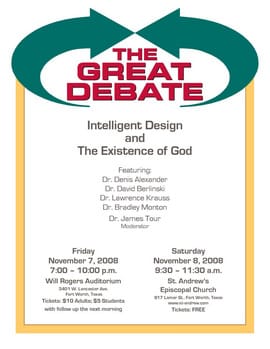Texas Science Standards Debate Is About Darwinian Evolution, not Intelligent Design
Science standards review processes always seem to send Darwinists into a misinformation flurry. The current review of Texas’ standards is no exception. Josh Rosenau has a post up yesterday attacking Casey Luskin that has a number of errors. Josh is in elite company, as these are the very same errors that spread like the flu through the MSM last spring. At that time we reported how the New York Times and Washington Post, among others, were misreporting the facts about “strengths and weaknesses” language in the Texas science standards.
Now Josh writes:
At issue is a Disco.-inspired standard in the older TEKS which requires teachers to have students “analyze, review, and critique scientific explanations, including hypotheses and theories, as to their strengths and weaknesses using scientific evidence and information” (my emphasis).
I corrected this back in June:
Read More ›






































